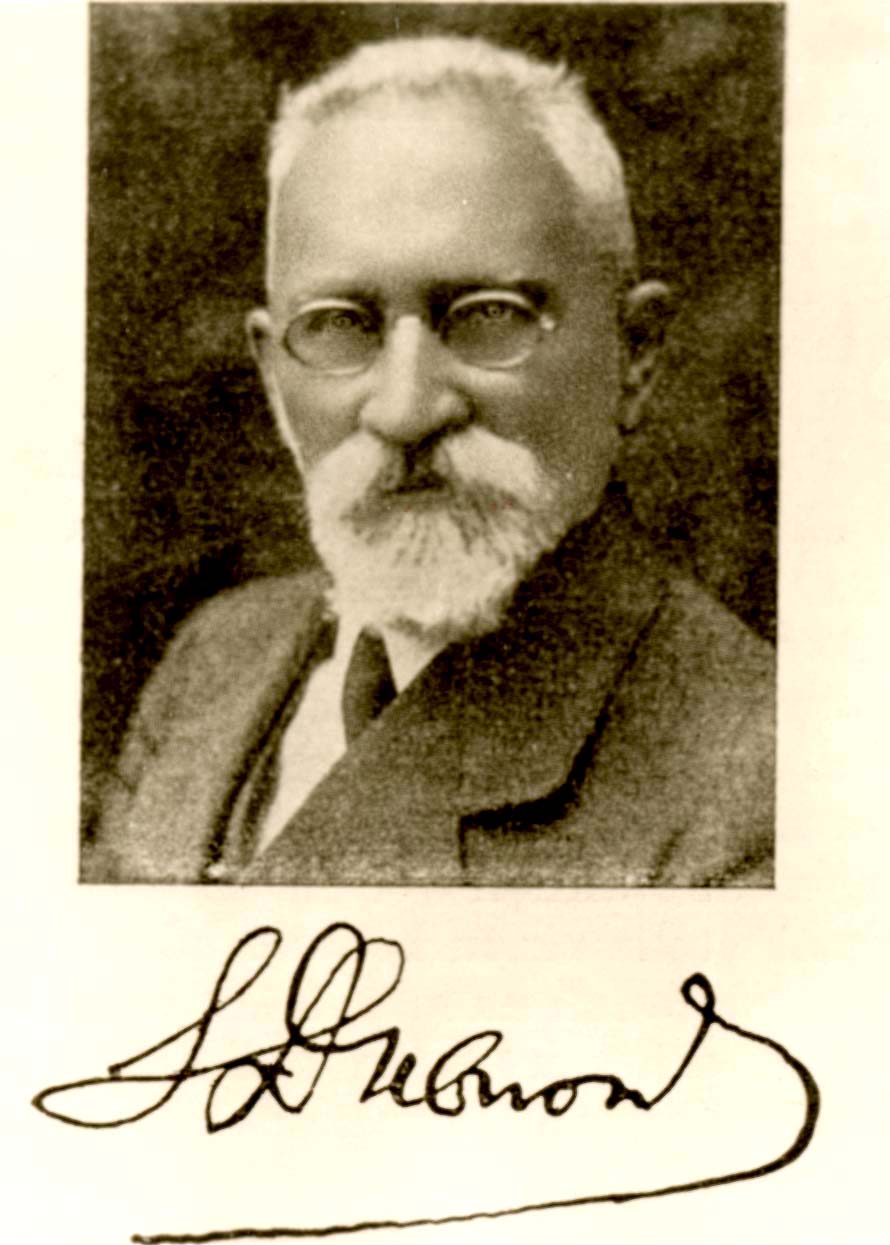Simon Dubnow (Semen Markovich Dubnov) – who was born in Mstislavl, Belorussia, and died in Riga, Latvia – was a Russian-Jewish self-educated historian, journalist, and political thinker. Dubnow was the author of groundbreaking histories of the Jews in Russia and Poland and of Hasidism. His conceptualization of Jewish history was based on his theory of shifting cultural centres of Jewish civilization — from Judaea, to Babylon, to Spain, to Germany, to Eastern Europe. As a political thinker, he advocated ‘autonomism’, an idea of Jewish linguistic and cultural autonomy in the diaspora.
In 1898-1899, Dubnow published a three-volume Russian-language ‘Textbook on Jewish History for Jewish Youth’, in which, in Dubnow’s words, ‘beside an all-encompassing general knowledge [of history] … [there is] all-encompassing special Jewish knowledge (… Jewish history, literature, etc.), pursuing one lofty goal: self-knowledge’.(Dubnow, Kniga zhizni: 146; Kel’ner 2008: 242-43).
In his textbook, Dubnow draws a nuanced portrait of Josephus as a statesman. According to Dubnow, Josephus was educated by Pharisees in Jerusalem but due to his active socialization with Romans (during his stay in Rome when he was 26) he developed a view that, while having religion and morality far superior to those of Romans, the Jews are much less successful in matters of government and secular knowledge and education. This is why Josephus believed that Judaea should align itself with the imperial policies of Rome and be a loyal part of the Pax Romana. This conflicted with Josephus’s mission as a military leader and defender of Galilee. Josephus desperately fought the Roman army, and on defeat, he chose to surrender and serve the Romans rather than kill himself like his fellow Jewish fighters. Thus he was condemned by the Jews and is remembered as a national traitor (Dubnow, Uchebnik, 291-302). Dubnow’s own attitude seems to be sympathetic, because Josephus’s political beliefs were in line with his own, on the Jewish political autonomy in the diaspora and on the balance of religious and secular culture in Jewish life. He did not, however, include Josephus in the group of ‘freethinkers of all epochs’. singled out as the true heroes of the Jewish people in his textbook, a group which included the Maccabees, rabbi Akiva, and Bar-Kokhba.
Dubnow, Simon, Kniga zhizni. Vospominaniia i razmyshleniia. Materialy dlia istorii moego vremeni. St. Petersburg: Peterburgskoe vostokovedenie, 1998.
Dubnow, Simon, Uchebnik evreiskoi istorii dlia evreiskogo iunoshestva, 3 vols. Odessa: Isakovich, Beilinson, 1898-1899.
Kel`ner, V., Missioner istorii. Zhizn` i trudy Semena Markovicha Dubnova. St. Petersburg, 2008.
Schedrin, V., ‘Story Within a Story: The First Russian-language Jewish History Textbooks, 1880s-1890s’, forthcoming – Polin 30 (2016).
Zeltser, R.M., Simon Dubnow’s ‘New Judaism’: Diaspora Nationalism and the World History of the Jews. Leiden, 2014.
JRA entry contributed by Vassili Schedrin
